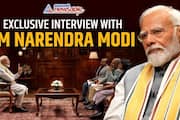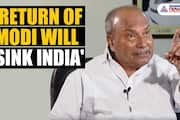Indian cricket is a cash cow, with every one busy milking their cut

Back in those days when there was little money in Indian sport, the Indian cricket team was once denied a day's per diem when it made short work of New Zealand in under four days. The Indians were naturally angry at the loss of one-fifth of their daily allowance. The historic Test win ought to have ordinarily fetched greater monetary compensation.
Instead, they were penalised. When they protested, the team manager curtly intoned: Who asked you to finish the Test in four days? And, pray, what was the daily allowance? All of Rs. One hundred and fifty rupees.
Now, they give them Rs two crore annual contracts. In addition, there is a match fee of Rs. 15 lakh for each Test, Rs. Six lakhs for one-day and Rs. Three lakhs for a T-20 match. As for the coach, he clears Rs. Seven crores per annum and reportedly wants that fee doubled. Of course, cricketers do not pay for anything, the Board of Control for Cricket in India picks up all bills.
Why are we talking about cricketers and their humongous fees in this column? Well, the provocation came from a report in a respected daily. It said the three-member committee constituted by the Supreme Court-appointed night watchmen of Indian cricket had asked for payment for picking the next coach of Indian team.
That all three have got enormously wealthy donning the national colours was neither here nor there. Nor did it matter that they had reputations to protect. One would have thought that Sachin Tendulkar, Sourav Ganguly and VVS Laxman could have done without remuneration, especially given the prestigious nature of the assignment.
But no, Indian cricket is a milch cow which must be milked as much as possible. Even the court-appointed administrators seem to be doing so as you shall see presently. That is why public intellectual Ramchandra Guha's resignation from the Committee of Administrators for cricket is unlikely to change anything.
For, barring an honourable exception or two, everyone, from long-standing cricket officials to present and past players, is complicit in the only game in town. Which is to milk the mass sport for personal enrichment.
Raising cavil about conflict of interest, as the eminent historian does, in an age of multi-crore scams is hardly likely to register on the antennae of judicial authorities which, most controversially, have undertaken to micro-manage the BCCI.
Guha clearly found a place on the COA because he is an acknowledged cricket aficionado. The author of a couple of eminently readable books on cricketing greats in the sub-continent, his refined sensibilities were probably hurt by the pervasive culture of permissiveness, with iconic stars raking in big bucks exploiting past glory and current connections with the BCCI bosses.
But the charge of conflict of interest against a Sunil Gavaskar or a Rahul Dravid pales into insignificance when over the years Indian cricket has been exploited for private gain by the very people entrusted to safeguard its interests.
In particular, the well-known historian's lament is bound to fall on deaf ears given that a retired Supreme Court judge appointed to run the affairs of the Delhi and District Cricket Association saw nothing wrong in seconding his own lawyer-daughter to the body. According to reports, she represented him in BCCI meetings and generally stood in for him, micro-managing DDCA affairs.
Her being on the panel of lawyers of the Delhi Government made her induction in the DDCA doubly troubling since a few of its office-bearers have on-going criminal defamation cases pending against the Kejriwal Government.
If the truth is told, the malaise of Indian cricket actually afflicts all sports. Vested interests have grabbed all sports bodies. They have so commandeered the membership that periodic elections of office-bearers have become a farce. Rival groups control sizable voting blocs and take turns to run these associations. It is not hard to find individuals controlling these bodies without a break for close to half a century.
Dynastic succession in sports is as much a reality as it is in politics.
Admittedly, cricket's mass following and, in the television age, the humongous riches ensure that everything connected with it draws public attention. The temptation for professional sports managers and retired cricketers to have a piece of the action is irresistible. From prominent politicians to marquee players, they have all managed to find a place in the BCCI or the provincial cricket bodies.
And those who fail to do so owing to their quarrelsome nature or other character flaws pose as reformers, feigning no other motive than to serve the cause of the game. The world of sport needs to be wary of such pretenders.
However, current players may not be devoid of temptation. They are making big money but, post-retirement, most of them will like to stretch the earning careers, turning into commentators or coaches or managers. The ones devoid of such talent might wangle subsidised land to run cricket academies or some such thing.
The point being that donning national colours virtually guarantees assured lifetime incomes.
On his part, Anil Kumble, whose continuation as the coach is uncertain, seems to have finally caused Guha, a fellow Bangalorean, to quit the COA, but he may not be entirely innocent of the profit motive. He may have had differences over cricketing matters with Virat Kohli, the reigning star of Indian cricket, but a power struggle between the coach and the captain was always going to be harmful to team morale and performance.
Incidentally, soon after his retirement, Kumble had offered to coach the Indian team in English speaking. As he put it, the country's image suffered when players found it hard to field post-match questions from TV journalists. He offered to tutor them in good, spoken English. His reported fees: Rs 10 lakhs per player. Mercifully, they did not squander money.
Anyway, most Indian players acquit themselves fairly well in post-match interactions, especially when you see the misery the best of Pakistani players go through answering simple questions.
Meanwhile, it is time we stopped commending former players for taking charge of Indian cricket. The experience of the Hyderabad and Karnataka associations is not particularly salutary. There is no point looking for simple solutions. The trouble stems from our collective weakness for easy money. And, of course, from the prevalent 'sab chalta hai' culture.
(Virendra Kapoor is a senior journalist and columnist. The views expressed here are his own and do not reflect that of Asianet Newsable.)
















